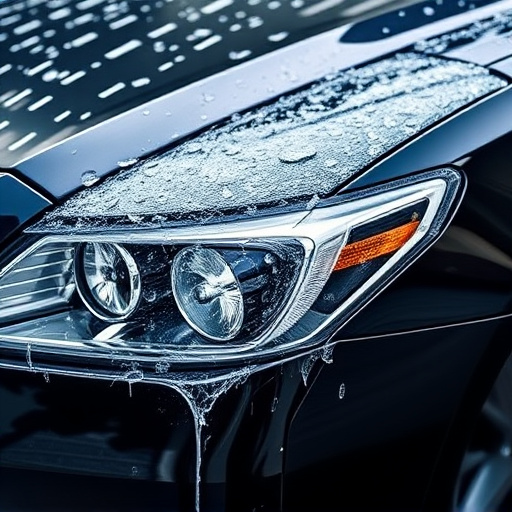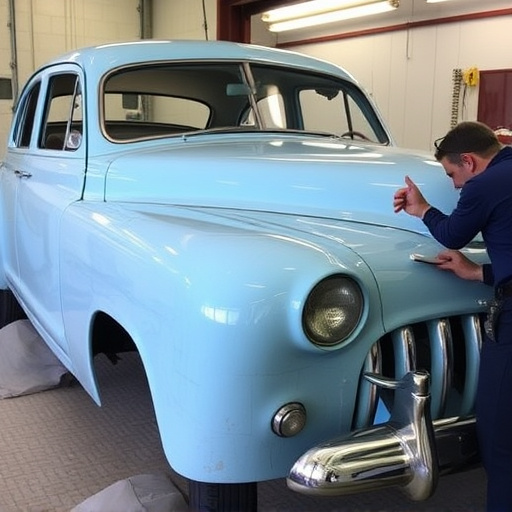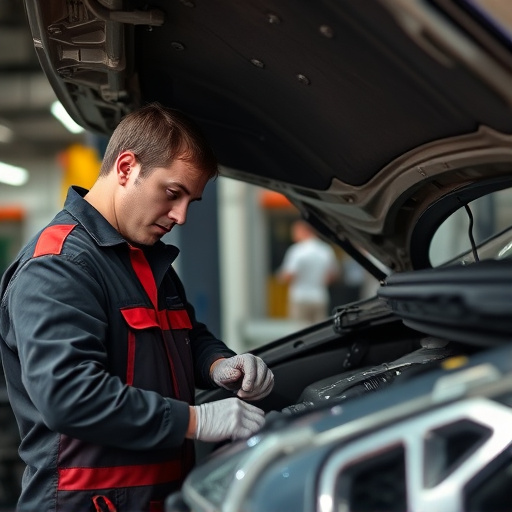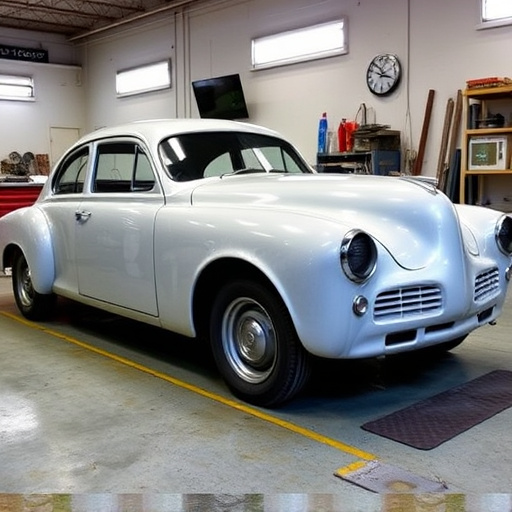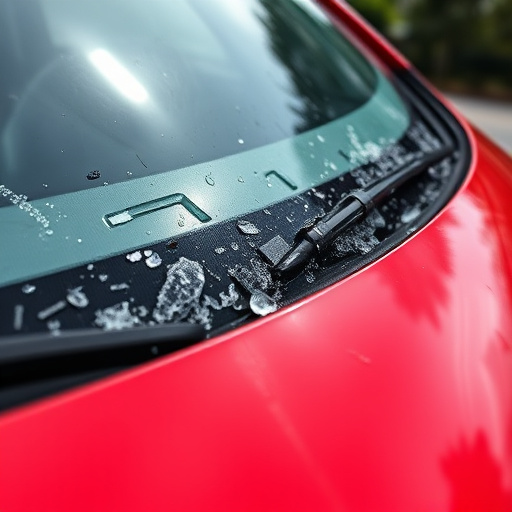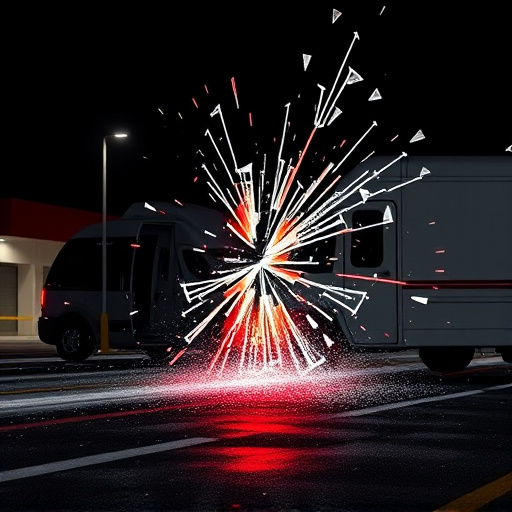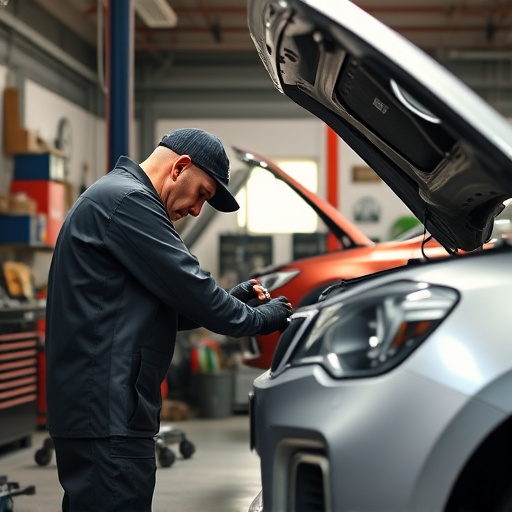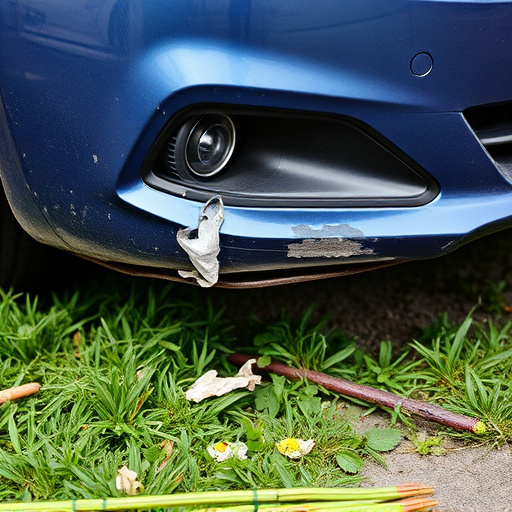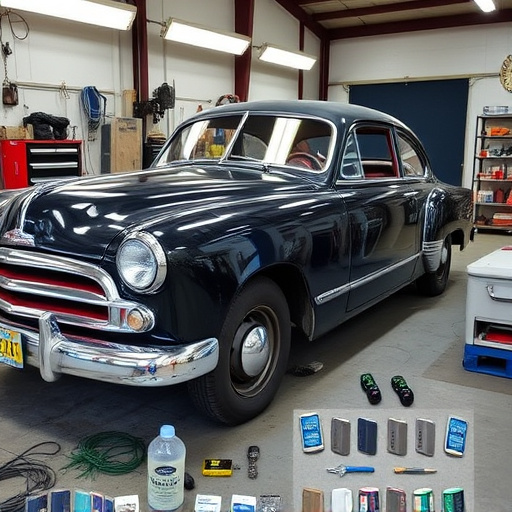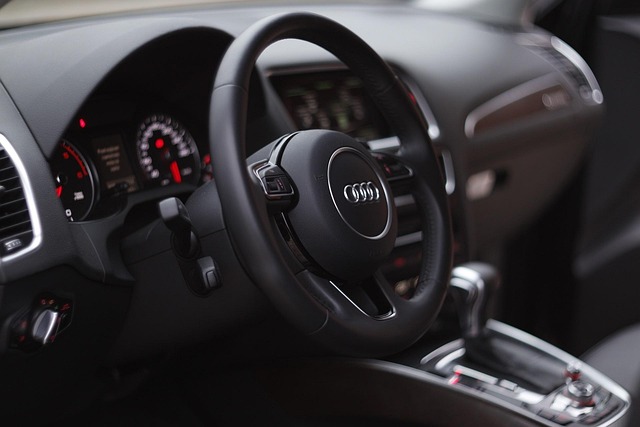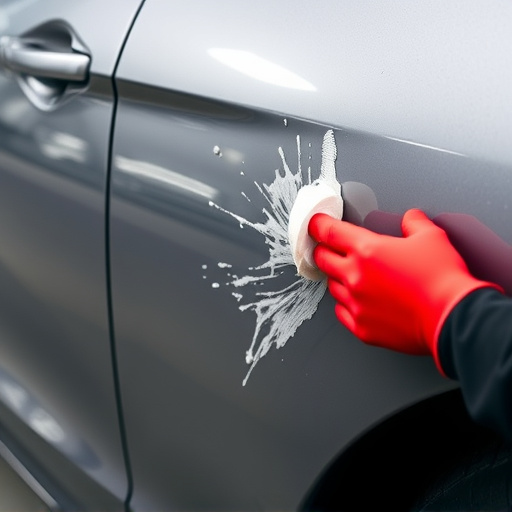Collision repair standards are essential guidelines for auto body shops to restore vehicles to pre-accident condition, ensuring structural integrity and enhancing resale value. Quality repairs by adhering to these standards benefit car owners and the industry, attracting buyers who appreciate quality craftsmanship. Deviating from standards may cause structural issues and safety hazards, negatively impacting a vehicle's long-term marketability.
Collision repair standards play a pivotal role in determining a vehicle’s resale value. These industry benchmarks, established to ensure quality and safety, significantly influence how buyers perceive used cars. By understanding the impact of these standards, both consumers and dealers can navigate the market more effectively. This article delves into the intricate relationship between collision repair practices and resale prices, highlighting the long-term effects on car market positioning.
- Understanding Collision Repair Standards: A Foundation for Value
- The Role of Quality in Determining Resale Prices
- Long-Term Effects: How Repairs Impact Car Market Positioning
Understanding Collision Repair Standards: A Foundation for Value

Collision repair standards serve as a foundational framework for maintaining and enhancing vehicle value. These standards dictate the processes and protocols car body shops employ during the restoration of damaged vehicles, ensuring they return to their pre-accident condition or even surpass it in some cases. By adhering to these guidelines, automotive body work professionals can guarantee that every aspect of the repair is executed meticulously, from assessing and fixing structural damage to expertly handling complex paint jobs.
Understanding collision repair standards is crucial for both car owners and the broader automotive industry. When a vehicle undergoes repairs according to these established norms, it ensures that any car dent removal or more extensive automotive body work is done correctly, preserving the integrity of the vehicle’s structure and aesthetics. This, in turn, directly impacts the resale value, as buyers increasingly seek out crash-free or minimally damaged vehicles.
The Role of Quality in Determining Resale Prices

The quality of collision repair plays a pivotal role in determining a vehicle’s resale value. When a car undergoes professional and meticulous collision repair, it not only restores its physical appearance but also ensures that its structural integrity remains unimpaired. This level of craftsmanship significantly influences how buyers perceive the vehicle, directly impacting its resale price. A well-repaired car, especially one that closely matches the original specifications, commands a higher value in the secondary market.
In the case of premium brands like Mercedes-Benz, maintaining strict collision repair standards is even more critical. These vehicles are known for their meticulous engineering and craftsmanship, and any deviation from the original condition can be a deal-breaker for discerning buyers. Thus, adhering to stringent repair guidelines ensures that these luxury vehicles retain their desirability and value over time, making them attractive options for prospective owners looking for top-tier automotive repair.
Long-Term Effects: How Repairs Impact Car Market Positioning

The long-term effects of collision repairs on a vehicle’s resale value are significant. When done correctly according to established collision repair standards, repairs can actually enhance a car’s market positioning. This is because it demonstrates the vehicle has been well-maintained and could potentially attract buyers who value quality craftsmanship and attention to detail. A thorough understanding of auto body shop procedures ensures that all components are restored to their original condition or even improved, which can increase the overall perceived value of the vehicle.
On the other hand, subpar repairs or failure to adhere to collision repair standards may negatively impact resale value. Poorly executed fixes could lead to visibility issues, reduced structural integrity, and potential safety hazards that may deter prospective buyers. Therefore, it’s crucial for both owners and auto repair near me facilities to prioritize collision repair standards to ensure the long-term health and marketability of a vehicle. This is equally important when considering an automotive body shop for repairs, as they play a vital role in preserving the car’s value over time.
Collision repair standards play a pivotal role in dictating a vehicle’s resale value. By upholding robust quality and safety benchmarks, these standards ensure that repaired vehicles retain their initial value and performance, fostering consumer confidence. Understanding and adhering to these guidelines is essential for both car owners and dealers, as it promotes transparency and preserves the overall health of the automotive market. Investing in quality collision repair ultimately contributes to a more sustainable and lucrative car resale landscape.
